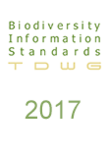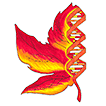In this collection

|
Papers published: 9 Documents added: 0 Total pages: 21 Printed version: Paperback Unique views: 15381 Total views: 27201 |
The routine use of (meta)genomics, (meta)transcriptomics, and the targeted sequencing of taxonomic marker genes is enabling monitoring of both micro and macro-organismal assemblages across a wide range of environments. Such monitoring of phylogenetic and functional diversity offers novel and valuable insight into how the biosphere is responding to environmental change. However, there are considerable obstacles to unifying multi-omic observation and monitoring strategies, which span environments from the deep marine subsurface to the urban atmosphere. Perhaps foremost, rapid development within the field often outpaces attempts to harmonise its techniques, despite progress by initiatives such as the Earth Microbiome Project, TARA Oceans, and Ocean Sampling Day. Overcoming these obstacles will be essential in realising an informatics infrastructure suited to a global, omically-enabled biodiversity monitoring system and incorporating omics-driven insights into the biodiversity metrics which inform the conservation and policy domain.
This workshop will begin with a collection of talks that will outline the scope of the challenge and possible solutions, followed by facilitated discussion towards delivering a draft data standard for reporting species occurrences as detected through varied environmental DNA (eDNA) methods and community meta-omics approaches. This issue is nontrivial and involves the intersection of geospatial, genomic and biodiversity informatics perspectives, among others. We will examine efforts such as long-term, omically enabled observatories as use cases in need of “future proof”, flexible standards and propose strategies for existing standards to contend with their demands. We also welcome contributions identifying aspects of omic data which have yet to be acknowledged in the standards landscape. Our activities aim to catalyse the robust interoperability and convergence of community-endorsed/best practices, metadata checklists, standard terminologies, knowledge representations, and persistent identifiers for the environments, samples, processes, information artifacts, equipment, and agents involved in this emerging, multidisciplinary domain.
We welcome submissions on topics directly related to the above, including:
Community-endorsed, best practices for ‘omic observatories and/or observation campaigns, such as:
Design and/or governance - emphasising interoperability
Standardised sampling, sample management, and archiving, including the use of persistent sample identifiers and FIMS/LIMS technologies
Standardised generation, processing, analysis, and archiving of ‘omics data
Acquisition, standardisation/structuring, processing, management, and exchange of metadata (e.g. use of checklists, structured formats, controlled vocabularies, ontologies, and FIMS/LIMS technologies)
- Efforts to translate omics outputs to diverse stakeholders, such as those in the policy, conservation, commercial, and public spheres

